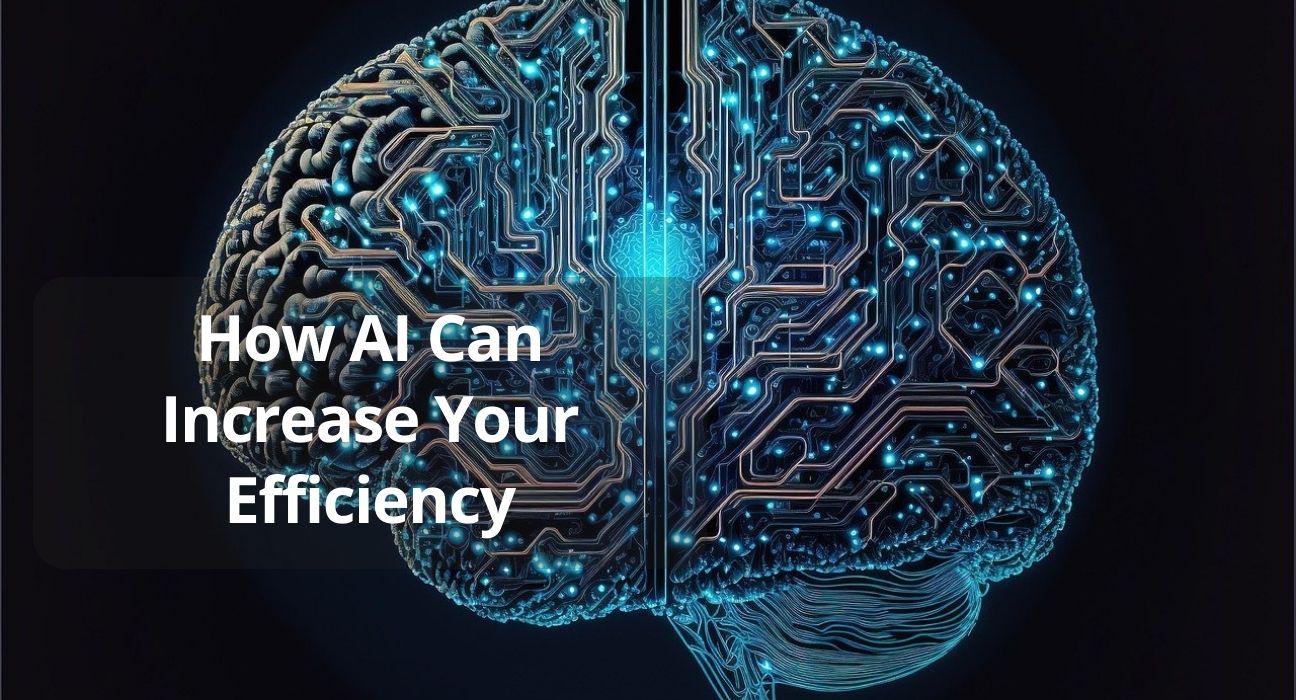Introduction to AI and Productivity
In today’s fast-paced world, increasing efficiency is a priority for individuals and businesses alike. Artificial Intelligence (AI) has emerged as a powerful tool in this quest, offering innovative solutions to enhance productivity across various sectors. By automating tasks, improving decision-making, and optimising communication, AI can significantly transform how we work and manage our time. From automating mundane tasks to personalising workflows and beyond, AI provides a myriad of ways to streamline operations. For businesses, this means leveraging AI to drive growth, improve customer service, and stay competitive in ever-changing markets. On an individual level, AI can help organise daily activities, manage schedules, and even suggest the most effective ways to complete tasks. The capabilities of AI extend to analysing large datasets, identifying patterns, and providing actionable insights, making it an invaluable resource for informed decision-making. As AI technologies continue to evolve, their potential to boost productivity and efficiency will only grow stronger.
Automating Routine Activities
AI’s capability to handle repetitive tasks with precision and speed is transforming the way we manage daily operations. For example, AI-driven software can efficiently manage data entry, schedule meetings, and handle customer service inquiries. In sectors such as finance and retail, AI is employed for inventory management and transaction processing, ensuring smooth operations without the need for constant human intervention. By taking over these routine activities, AI allows you to focus on strategic tasks that require creativity and critical thinking. Additionally, AI’s ability to reduce human error in these repetitive tasks enhances overall efficiency and reliability in various processes.
Better Decision-Making
AI excels at analysing large datasets quickly and accurately, making it an invaluable asset for better decision-making. With the ability to process complex information and identify patterns, AI provides insights that might be missed by human analysts. For businesses, this means more informed decisions that can drive growth and competitiveness. For instance, AI can analyse market trends, customer behaviour, and financial data to recommend strategies that optimise performance. By relying on AI for data-driven decisions, organisations can respond more effectively to changes in the market and stay ahead of the competition.
Advancements in Communication
AI tools are transforming workplace communication, enhancing both collaboration and information sharing. Chatbots are increasingly employed to facilitate customer support and internal communication, providing instant responses to common queries. AI-powered transcription services convert spoken language into text, simplifying the documentation of meetings and discussions. Additionally, AI can help streamline communication by sorting emails, prioritising messages, and suggesting responses. These tools save time and ensure efficient and effective communication, fostering a more collaborative work environment. The integration of AI into communication processes not only improves speed and accuracy but also reduces the likelihood of miscommunication, leading to smoother and more productive interactions.
Personalised Task Flows
AI stands out in its ability to tailor task flows to suit individual preferences and requirements. By analysing user behaviour, AI applications can adapt workflows, ensuring that tasks are organised to maximise productivity. For instance, AI-driven project management tools can suggest the most efficient sequence for tasks and allocate resources based on historical performance data. In the realm of creativity, AI assists by recommending resources and tools that align with the user’s unique style and preferences. This personalisation means that both individuals and teams can operate more smoothly, with less time spent on planning and organisation. AI’s capacity to learn and adapt makes it an invaluable asset in creating bespoke workflows that cater to specific needs, ultimately enhancing overall efficiency.
Managing Time Effectively
Effective time management is paramount for maintaining high levels of productivity, and AI offers a variety of tools to support this goal. AI-powered scheduling applications can automatically arrange meetings at convenient times, taking into account participants’ availability and preferences. These tools not only eliminate the hassle of manual scheduling but also help avoid conflicts and ensure that meetings are set at optimal times for everyone involved. Time tracking tools equipped with AI capabilities can monitor how time is allocated across different tasks, providing valuable insights into productivity patterns. This data can be used to make adjustments and ensure that time is spent more wisely.
AI can also assist in prioritising tasks based on urgency and importance, sending reminders for deadlines to keep users on track. For example, an AI-driven application might analyse your to-do list and highlight the most critical tasks to be completed first, ensuring that essential activities are not overlooked. By managing deadlines and prioritising tasks, AI helps maintain a focus on high-priority items, thus enhancing overall productivity.
Moreover, AI tools can assist in identifying inefficiencies in workflows and suggest improvements. By continuously learning from user behaviour, these tools can adapt and offer increasingly accurate recommendations over time. This means that the more you use AI for time management, the more tailored and effective its suggestions become.
Final Thoughts
AI is revolutionising how we approach both personal and professional tasks, offering innovative solutions to improve productivity and efficiency. By integrating AI tools, businesses can streamline operations, reduce human error, and enhance decision-making processes. These technologies are not just limited to large enterprises; individuals can also benefit from AI by managing their time more effectively and personalising their workflows to fit specific needs.
AI-driven advancements in communication and task management have shown that even small changes can make a significant impact on overall productivity. The capacity of AI to adapt and learn from user behaviour means that the tools we use today will only become more effective over time. Moreover, AI’s ability to analyse data quickly and accurately provides invaluable insights, enabling more informed decisions that can drive growth and competitiveness.
While the initial adoption of AI tools may require some investment in time and resources, the long-term benefits are substantial. By embracing these technologies, we can look forward to a future where routine tasks are automated, decision-making is data-driven, and communication is seamless. In this rapidly evolving landscape, those who leverage AI will be better positioned to meet the challenges and opportunities of the modern world, ultimately leading to greater success and fulfilment.








Leave feedback about this